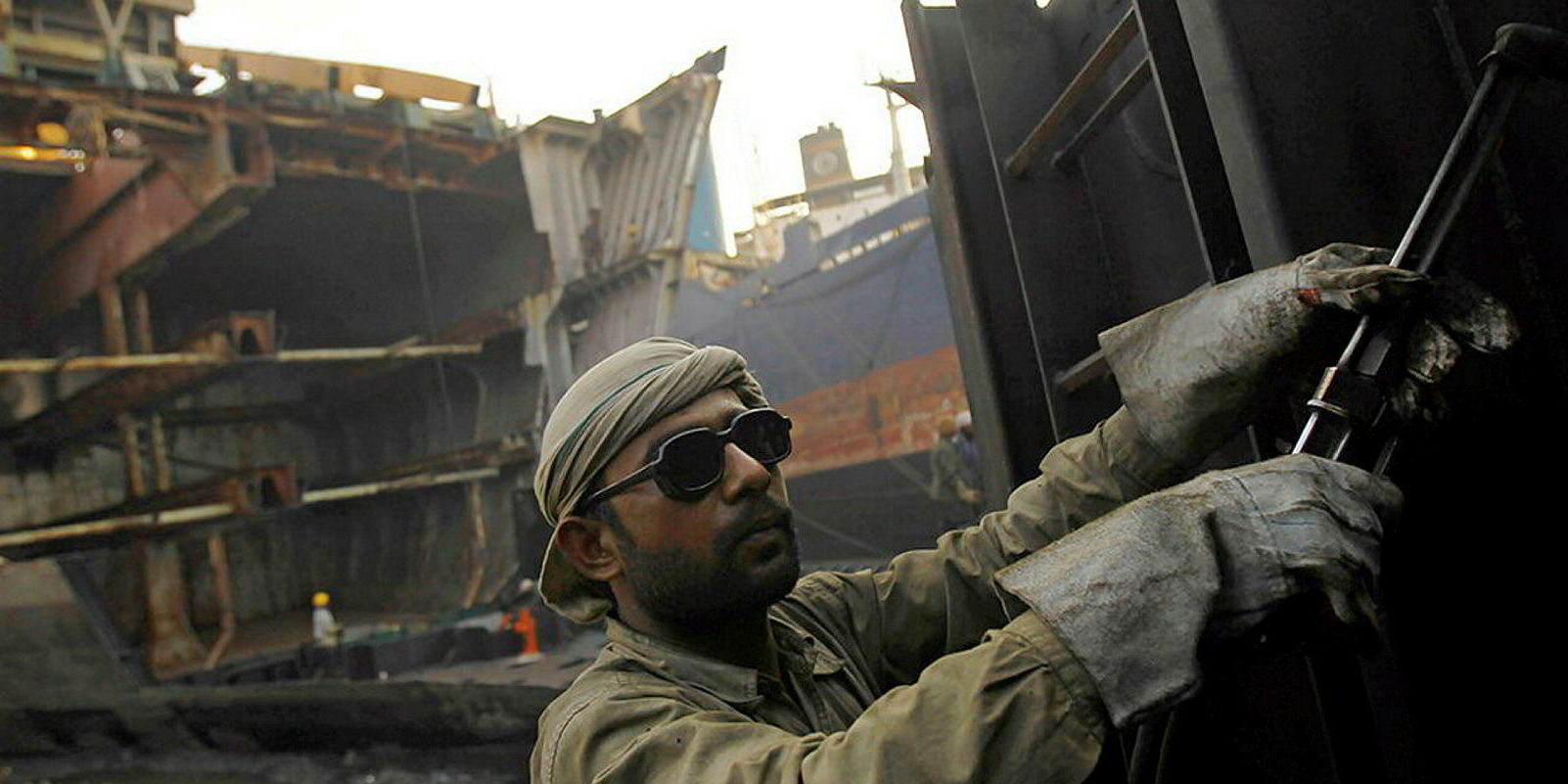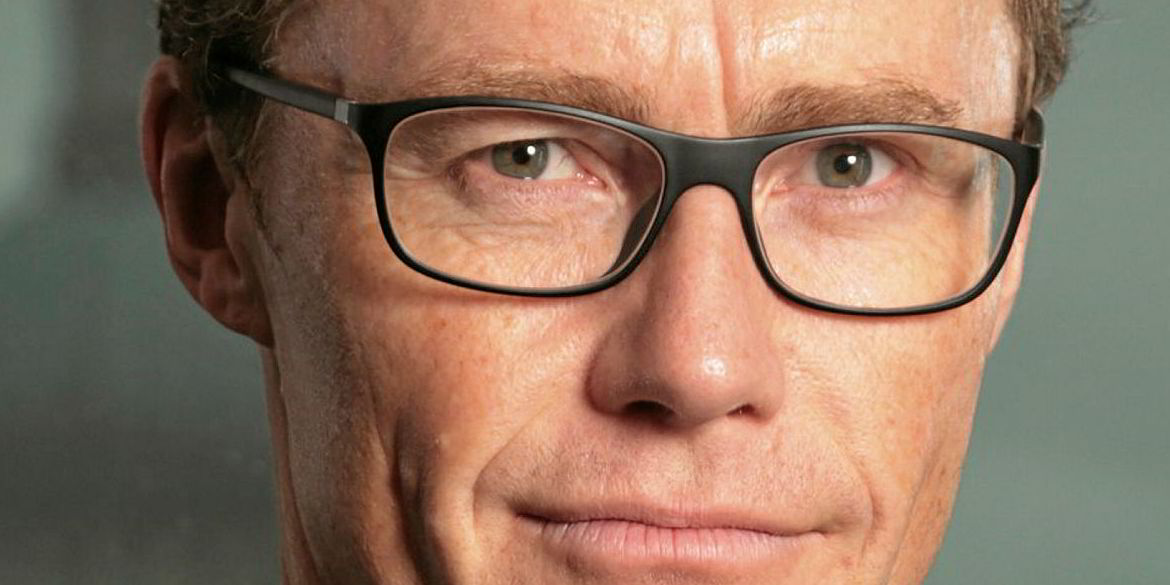Nine years after an international agreement in Hong Kong on new global rules to help clean up the dirty, dangerous business of scrapping redundant ships, the market remains largely unregulated and burdened with poor practices.
With 835 oceangoing ships scrapped last year, it is a vital but under-resourced part of the industry.
But for the 130,000 workers who work in the industry in India, Pakistan and Bangladesh — which make up 80% of the market — it remains one of the most dangerous jobs in the world, according to the International Labour Organization.
Scrapping is “the one part of the shipping value chain that we can be least proud of”, according to John Kornerup Bang, head of transport and logistics sustainability strategy at AP Moller-Maersk.
“Widespread poor standards” make it “one of the darkest spots in the ship value chain”, he told delegates at TradeWinds Ship Recycling Forum in Hamburg last week.
In addition to poor working standards that continue to cause deaths, environmental pollution is endemic.
The impact of the IMO’s Hong Kong Convention, signed in 2009 with the intention of pushing the industry’s clean-up, has been limited. The standards it aims to lay down are basic, at best. Furthermore, even after all this time it has failed to win the ratification of sufficient shipowning and scrapping nations to enter into force.
As the only IMO convention agreed in Asia, the failure casts a shadow on the region’s ability to achieve better standards.
That failure has also fuelled the European Union’s aggressive push for what it sees as acceptable higher standards, which it intends to enforce rigorously from the end of this year. And Europe’s courts are now showing an interest.
Despite the overall failure of policy, it must be acknowledged that matters on the ground appear to be improving slowly. In India, 66 yards now have certificates from class societies attesting that they meet standards laid down under the Hong Kong Convention.
In Bangladesh, at least four yards are investing to upgrade their facilities, while in Pakistan there is a drive to enforce the basic “gas-free” rule for tanker scrapping after the devastating accident that killed 18 workers in November 2016.
Although some observers have questioned the rigour of the certification process in India, some yards have gone further. Shree Ram Group has invested $15m to bring its facilities up to a standard that it hopes will bring it certification under the new European rules.
Shree Ram’s owner, Chetan Patel, sees his investment bringing new business through a green scrapping partnership with Maersk. It has also broken ships for Stolt, BW and NYK, among others.
His experience shows that investment in relatively simple infrastructure pays dividends. The company has built a solid impermeable concrete landing floor, installed cranes to lift blocks rather than dropping them into the intertidal zone, arranged baskets to stop cuttings falling into the sea and instigated better management and working practices.

Only about 35 owners used such “green” facilities last year, with most of the others apparently turning a blind eye to their responsibility for the end of life of their vessels. Hapag-Lloyd said green scrapping cost it about $1m per ship more than if it sold to the highest scrap bidder.
Shipbreaking executives in India and Bangladesh now openly attack shipowners for “hiding from their responsibilities” and “playing tricks” to get the highest scrap prices and not caring about standards. While their anger may be fair, the situation is simply the result of the market taking control amid the failure of regulation and enforcement.
However, a new force is emerging that may push owners to take greater care. Banks in northern Europe and Scandinavia have created an alliance to encourage their client shipowners to declare their scrapping policies. The institutions clearly believe the owners they are financing should conform to industry best practice. Although it is starting as a voluntary process, there is the suggestion that in time this might become an obligatory term for doing business, since the banks face their own reputational risks.
In shipping, money talks. Today, the scrap steel price is the biggest influence on shipowners’ choice of yards, as most simply ignore the potential environmental and social costs. Tomorrow, in the continued absence of effective rules, it may be the shipping banks that start holding owners to account.




